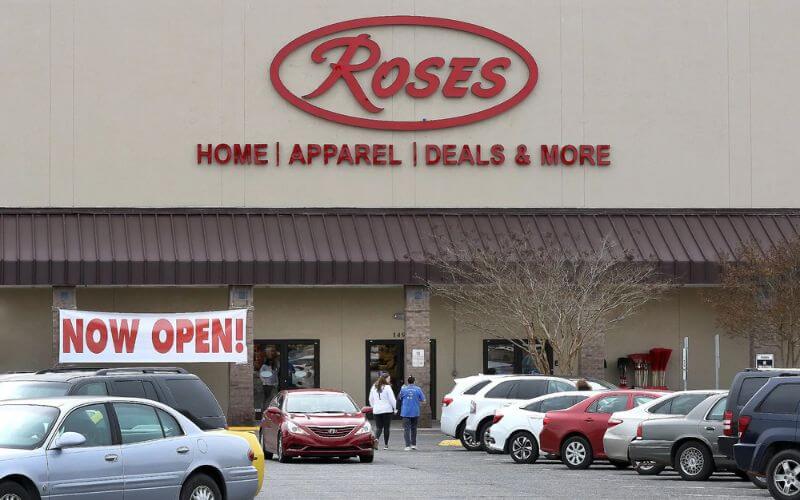Roses, now known as Rose’s Stores, has a rich history in the American retail landscape. Founded as a thriving retail chain, it once stood as a beacon of shopping convenience and budget-friendly products for families across the United States. The company enjoyed its heyday in the mid-20th century, providing affordable goods and exceptional value.
Despite facing several hurdles over the decades, Roses is still operational today, continuing its mission to offer low-priced products to consumers. In this article, we will explore the fascinating journey of Roses, its financial struggles, and the ongoing efforts to sustain its business legacy.
Historical Background
Roses emerged as a popular retail chain that rapidly expanded during the mid-20th century. By 1959, Roses had reached significant milestones in sales, recording $38.8 million and becoming a leader among variety stores in terms of sales growth.
This period marked a high point for Roses, capturing the attention of shoppers looking for variety and affordability. However, the retail environment began shifting, and Roses found itself grappling with increasing competition from larger retail chains like Walmart and Kmart. The pressures of this new competitive landscape inevitably impacted Roses, setting the stage for future challenges.
Financial Challenges
In the early 1990s, Roses faced financial difficulties that culminated in the company’s filing for Chapter 11 bankruptcy protection in 1993. The decision to seek bankruptcy protection was a pivotal moment in Roses’ history, as it struggled to compete with the larger retail giants that had begun to dominate the market.
During this period, Roses closed over 100 stores as part of its restructuring efforts and secured exit financing to realign its business operations. This period of turmoil was a turning point for Roses and underscored the difficulties of maintaining a mid-sized retail chain in a rapidly evolving market environment.
Acquisition and Ownership
The story of Roses took a new direction in 1997 when Variety Wholesalers acquired the company for under $20 million. This acquisition marked the beginning of a transformative era for Roses. Under the ownership of Variety Wholesalers, which is owned by the Pope family, Roses underwent significant changes aimed at stabilizing and revitalizing the chain.
At the time of purchase, the number of operating Roses stores had diminished significantly to fewer than 120, a steep decline from its peak of 260 stores. Nonetheless, Variety Wholesalers saw potential in Roses and took upon itself the challenge of breathing new life into the brand.
Current Operations
Today, Roses continues to operate as part of Variety Wholesalers’ diverse retail portfolio. The company encompasses several different store formats, including Roses and Roses Express stores, Maxway stores, and Super 10 stores.
As of the last recorded data, Roses and its associated brands comprise around 169 Roses and Roses Express stores, 149 Maxway stores, and 51 Super 10 stores. The company employs approximately 8,500 people across these various formats, maintaining its position as a key player in the budget retail sector. Every store offers a unique blend of products and focuses on serving value-oriented consumers.
Business Strategy
Roses’ strategy primarily centers on catering to a value-conscious, lower-income consumer base. The company has identified an effective niche by focusing on smaller store formats, ranging from 15,000 to 50,000 square feet. This approach helps maintain cost efficiency while optimizing inventory. Products offered at Roses include a diverse range of discounted and closeout merchandise, appealing to customers seeking great deals.
Moreover, Roses has adopted a strategic method of taking over retail spaces abandoned by other chains, thus avoiding the expenses associated with new construction. This intelligent approach aligns with its mission to serve communities with affordable goods in a no-frills shopping environment. For those interested in retail strategies that emphasize value, you may find our discussions on Side Business Mag insightful.
Ongoing Challenges
Despite its resilience, Roses faces several ongoing challenges in today’s competitive retail landscape. One significant issue is the company’s limited technological adoption. As of recent updates, Roses did not have an e-commerce platform, a critical disadvantage in an era where online shopping is essential for retail growth.
Additionally, the company has chosen not to invest in new store development, focusing instead on renovating existing locations. This approach hinders potential market expansion. Moreover, Roses competes directly with larger retail chains and the ever-popular dollar stores, further complicating its path to maintaining or growing its market share.
Future Outlook
Despite these challenges, Variety Wholesalers remains committed to sustaining and possibly expanding the Roses brand. The company’s leadership, with CEO Art Pope at the helm, expresses confidence in Roses’ current position and its ability to serve an important market segment.
By offering low-priced goods that cater to a demographic lying somewhere between large discount retailers and dollar store clientele, Roses aims to carve out a unique niche. While the path forward may be riddled with challenges, Roses’ strategic approach shows promise for continued operation and potential growth.
Conclusion
In conclusion, Roses stands as a testament to the resilience and adaptability of a beloved retail brand. From its glorious past to its turbulent financial struggles and eventual resurgence under Variety Wholesalers, Roses has demonstrated its ability to navigate change and persevere through adversity.
While ongoing challenges remain, especially in terms of technological adoption and competitive pressures, Roses’ steadfast focus on serving value-conscious consumers keeps it relevant. As the company continues to fine-tune its business model and strategize for future growth, there remains hope that Roses will not only survive but thrive in the ever-evolving retail environment.


